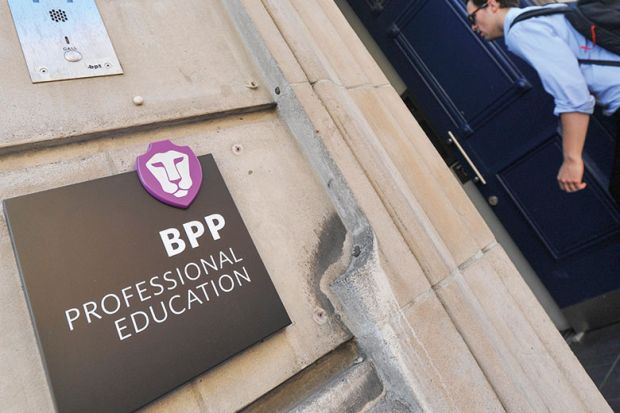One of the UK’s leading providers of for-profit higher education has won a major victory against HM Revenue & Customs in a dispute over whether it should have to pay VAT on the supply of books.
Barristers representing BPP Group, the owner of BPP University, successfully persuaded the Supreme Court that HMRC should be barred from having any further role in the legal action after the tax authority repeatedly failed to provide information required for the case in time and correctly.
The ruling is thought likely to improve BPP’s chances of success in the substantive dispute, in which a reported £6 million is at stake.
HMRC had warned the court that barring it from the case may mean that “VAT which should be paid may not be recovered”.
The dispute stretches back to 2006, when a corporate rearrangement led BPP to create two companies: one, BPP Learning Media, which supplied books, and another, then called BPP University College of Professional Studies, which provided education services.
Since books are usually “zero-rated” for VAT, BPP did not account for the supply of VAT on books, but HMRC disagreed with this and, according to the court’s judgment, “contended that BPP’s analysis was flawed, or [alternatively] that the changes made in 2006 represented an abuse”.
In 2012, HMRC issued an assessment on the basis that BPP should have paid VAT on the supply of books, but BPP contested this in the courts.
HMRC ran into trouble when it failed to provide information linked to the case which was requested by BPP on time and correctly on a number of occasions and, as a result, BPP successfully applied for an order barring HMRC from taking further part in the case.
Lord Neuberger, the president of the Supreme Court, acknowledged that the order would “either improve BPP’s prospects of success in the substantive surviving appeal (if the appeal goes ahead unopposed) or result in BPP succeeding on the appeal when it might not otherwise have done so (if HMRC concede the appeal)”.
But he said that the debarring order would not be overturned, “given the combination of the nature and extent of HMRC’s failure to reply to BPP’s request, the length of the delay in rectifying the failure and the length of the consequential delay to the proceedings, the absence of any remedy to compensate BPP for the delay, and the absence of any explanation or excuse for the failure, coupled with the existence of other failures by HMRC to comply with directions”.
The courts will rule on whether BPP should have to pay the VAT at a future date, with judges relying only on written submissions that HMRC had made previously.
An HMRC spokesman said that the agency was “considering the judgment carefully”.
David Palfreyman, co-author of The Law of Higher Education, said that the rules around supplying “teaching materials” were “complex”, and that many traditional universities had been the subject of VAT disputes.
Mr Palfreyman, bursar of New College, University of Oxford, said that it did not appear to him to be “a matter of an allegedly wicked private equity-owned for-profit ‘cheating’ the British taxpayer out of £6 million compared to the non-profit higher education institutions supposedly eagerly and patriotically stumping up on VAT whenever possible”.
But he acknowledged that “those opposing the very concept of for-profit higher education providers will doubtless want to see it that way”.
BPP declined to comment.
